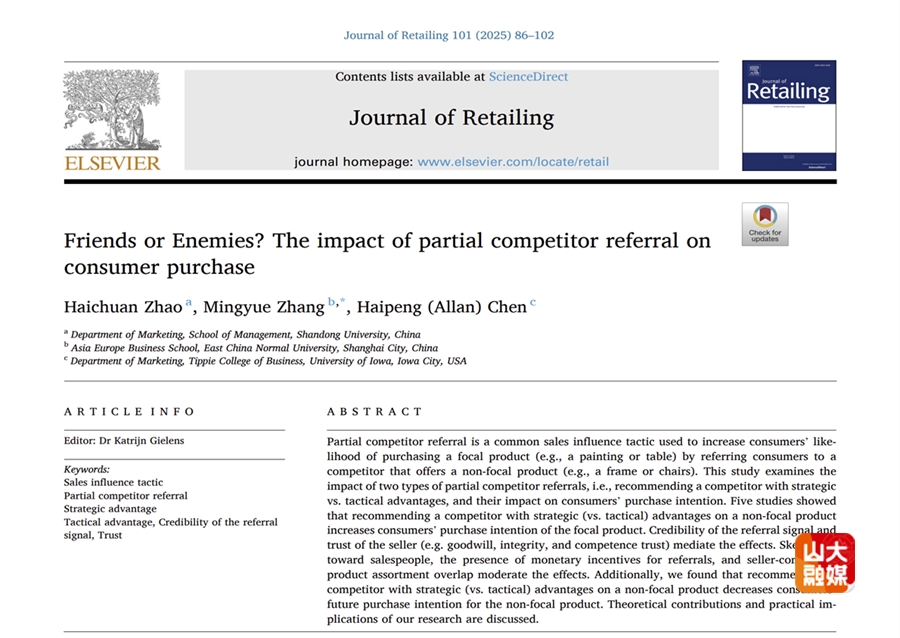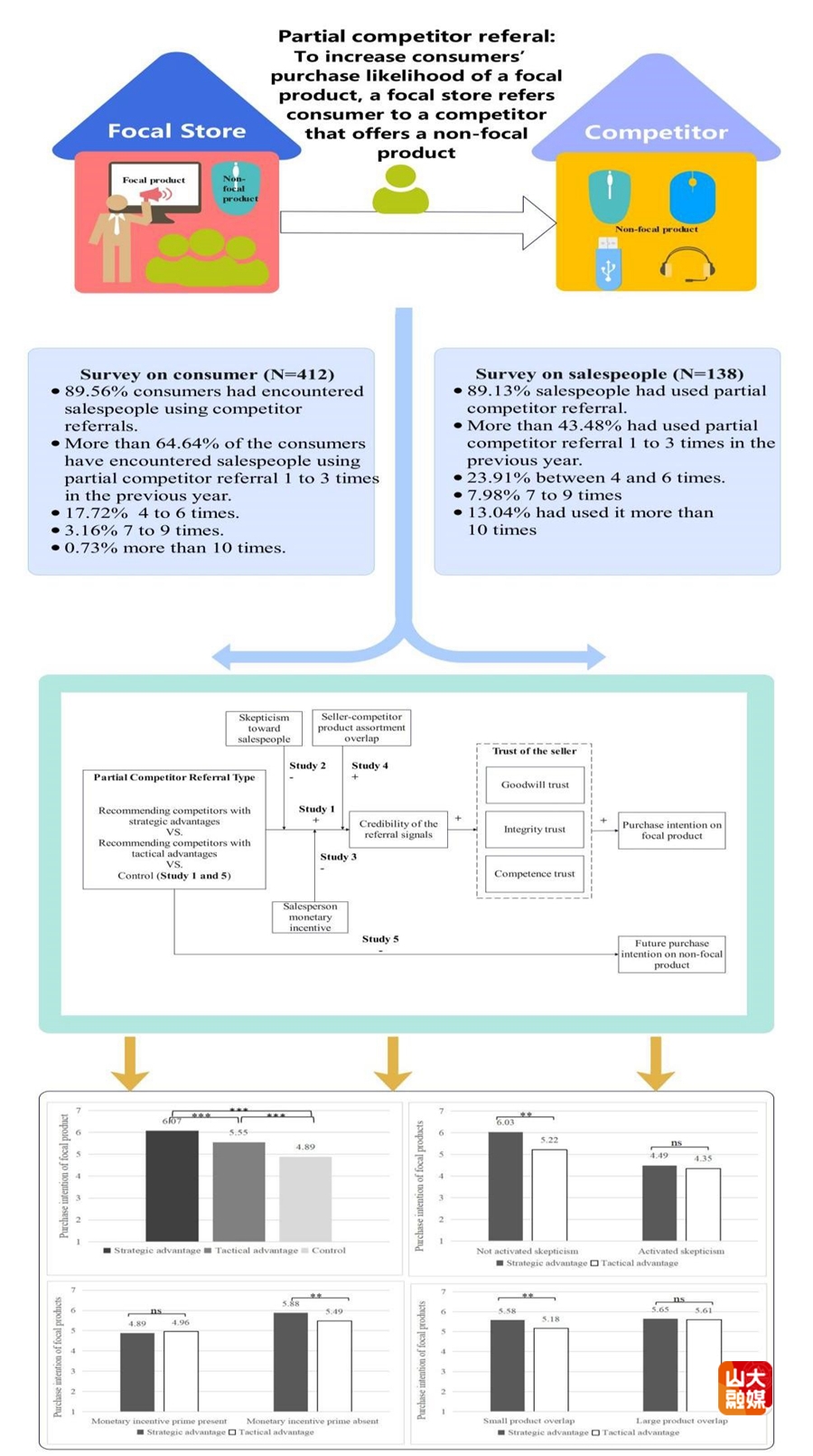
Recently, Professor Zhao Haichuan from the School of Management at Shandong University, in collaboration with Associate Professor Zhang Mingyue from East China Normal University and Professor Haipeng (Allan) Chen from the University of Iowa, published a research article titled “Friends or Enemies? The Impact of Partial Competitor Referral on Consumer Purchase” in the Journal of Retailing (ABS 4, Impact Factor: 8.0), a leading journal in the field of marketing. Professor Zhao Haichuan is the first author, and Shandong University is the lead affiliation.

The study delved into the mechanism by which the sales tactic of "partial competitor referral" influences consumers' purchase behavior. Partial competitor referral refers to a strategy where salespersons promote the purchase of a focal product in their store by recommending a competitor's non-focal product to consumers. Through five experiments, the research found that recommending a competitor with strategic advantages, compared to one with tactical advantages, significantly enhances consumers' purchase intention towards the focal product. The effect is mediated by the credibility of the referral signal and trust in the seller. Additionally, the study identified several factors that moderate this effect, including consumers' skepticism towards salespersons, the presence of monetary incentives for referrals, and the degree of product assortment overlap between the seller and the competitor. The research also uncovered a potential negative impact: recommending a competitor with strategic advantages reduces consumers' future purchase intention for the non-focal product.
The study originally proposed the strategies of strategic partial competitor referral and tactical partial competitor referral, filling a gap in this field. The research not only enriched the theoretical framework of sales influence strategies but also provided practical guidance for retail enterprises on how to effectively utilize competitor referral strategies. For example, when recommending competitors, enterprises should give priority to those with strategic advantages to enhance consumers' sense of trust and purchase intention. At the same time, enterprises need to pay attention to consumers' skepticism towards salespersons and avoid reducing the credibility of the recommendation due to monetary incentives.
Professor Simon Blanchard, associate editor of top-tier marketing journals (including Journal of Consumer Research, Journal of Marketing, and Journal of Marketing Research), gave high praise to the study. Simon pointed out, "The term 'partial competitor referral' is ingeniously coined and more fitting than the previously used 'specialized competitor referral'. Meanwhile, the distinction between strategic and tactical referrals in the study is also quite meaningful. From our research perspective, our findings are more aligned with 'strategic' referrals, so I'm delighted to see that you have robustly replicated this discovery. Additionally, the discussion on consumer skepticism and trust in the study is also highly valuable."
Zhao Haichuan is director, professor, doctoral supervisor of the Department of Marketing and International Business at the School of Management, Shandong University. He is also a recipient of the Young Taishan Scholars award and a Qilu Young Scholar. His research focuses on digital platform governance, consumer behavior, personal selling, and artificial intelligence. He has published extensively in high-impact journals such as Information Systems Research (UTD24, FT50), Journal of Retailing (ABS 4), Journal of Interactive Marketing, Journal of Business Research, Computers in Human Behavior, Journal of Management Sciences in China, and Journal of Marketing Science.
The research was supported by the National Natural Science Foundation of China.